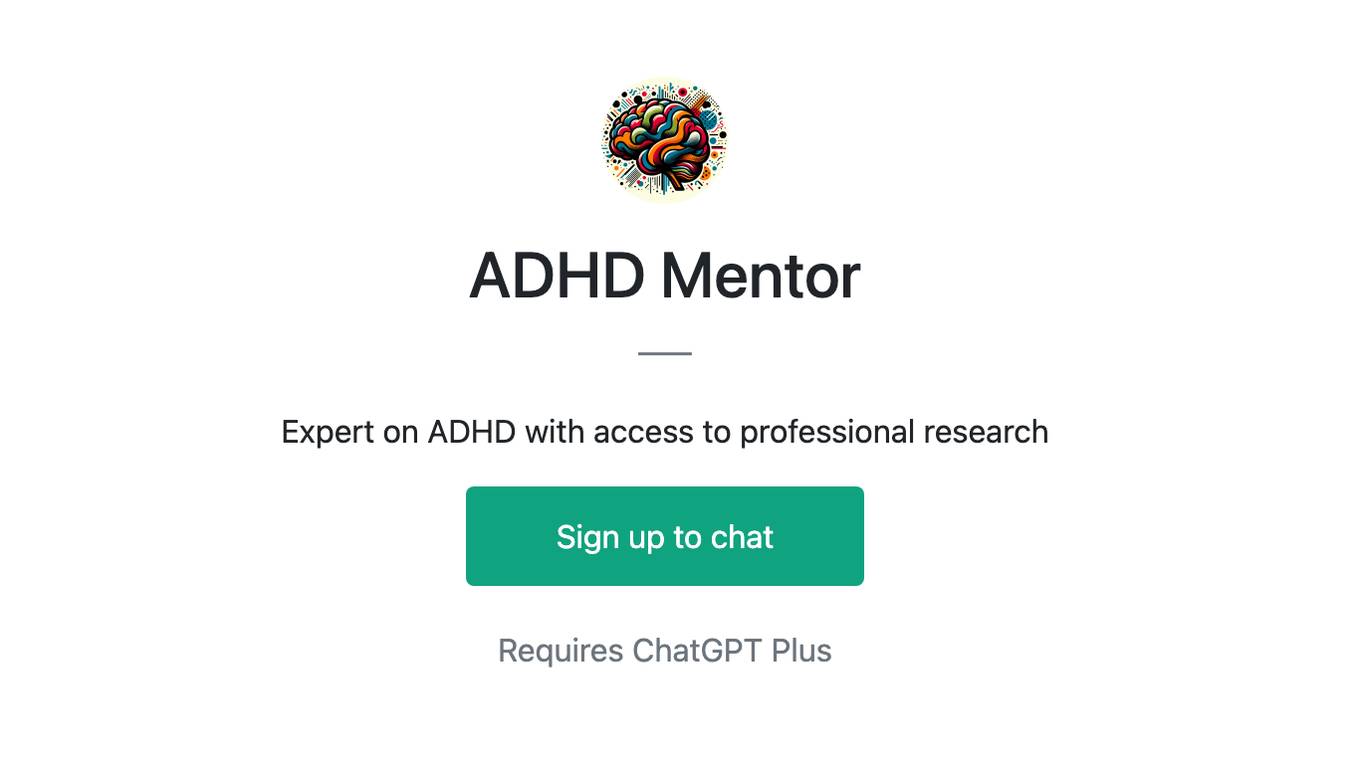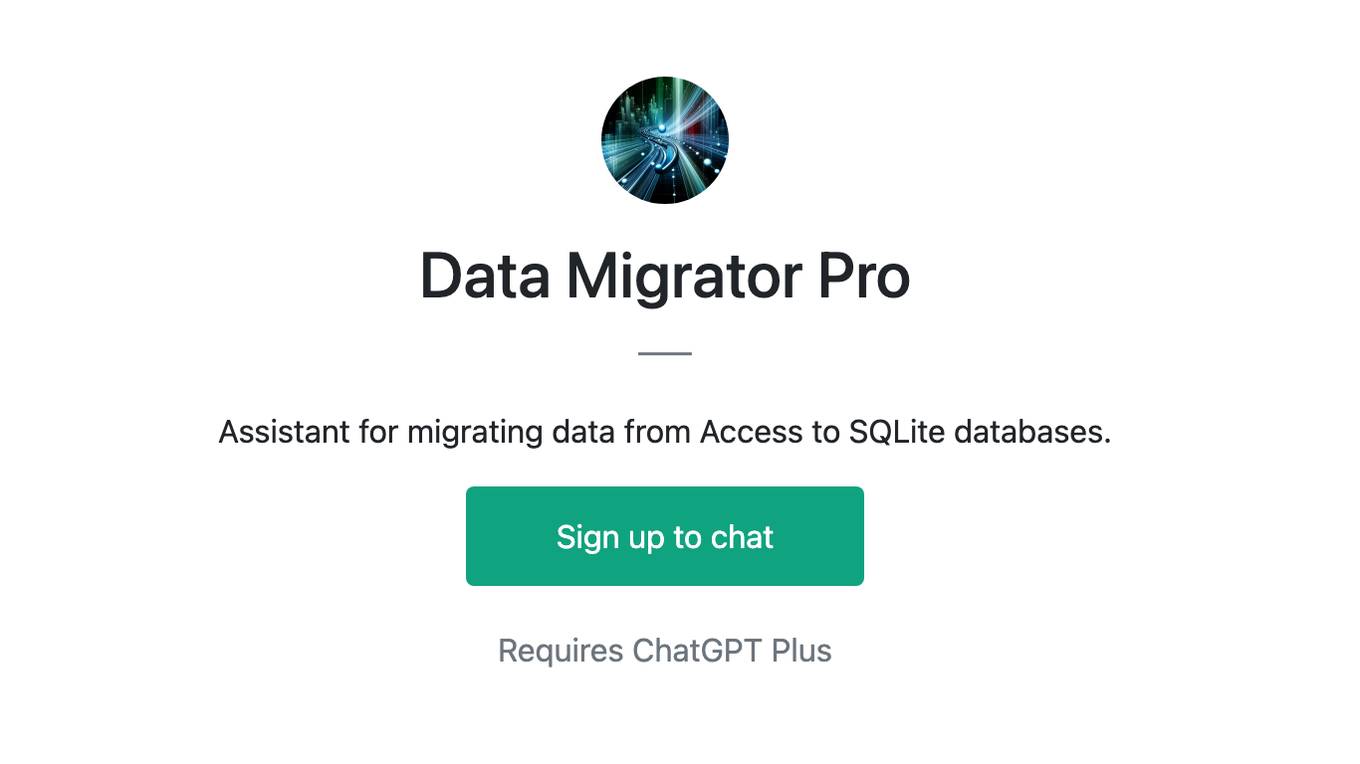Best AI tools for< Access Hardware Information >
20 - AI tool Sites
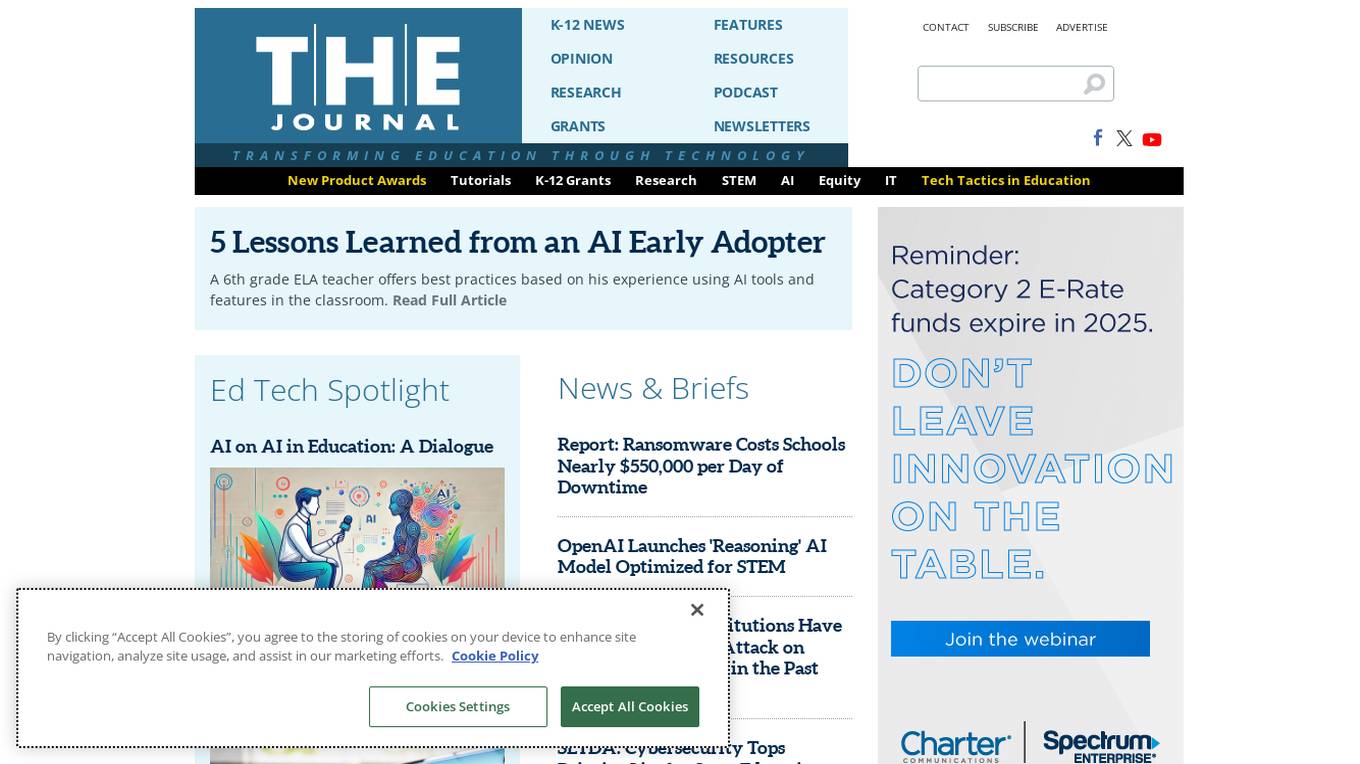
THE Journal
THE Journal is an AI-powered educational technology platform that focuses on providing the latest news, insights, and resources related to technology in education. It covers a wide range of topics such as cybersecurity, AI applications in education, STEM education, and emerging trends in educational technology. THE Journal aims to transform education through the integration of technology, offering valuable information to educators, administrators, and policymakers to enhance teaching and learning experiences.

Ninja AI
Ninja AI is an all-in-one AI platform designed for unlimited productivity. It offers a wide range of AI agents and models to assist users in tasks such as research, writing, coding, image generation, and file analysis. Ninja's compound AI system orchestrates across various AI models to deliver outstanding results. The platform is cost-efficient, user-friendly, and powered by next-gen hardware from AWS, ensuring high performance and adaptability.
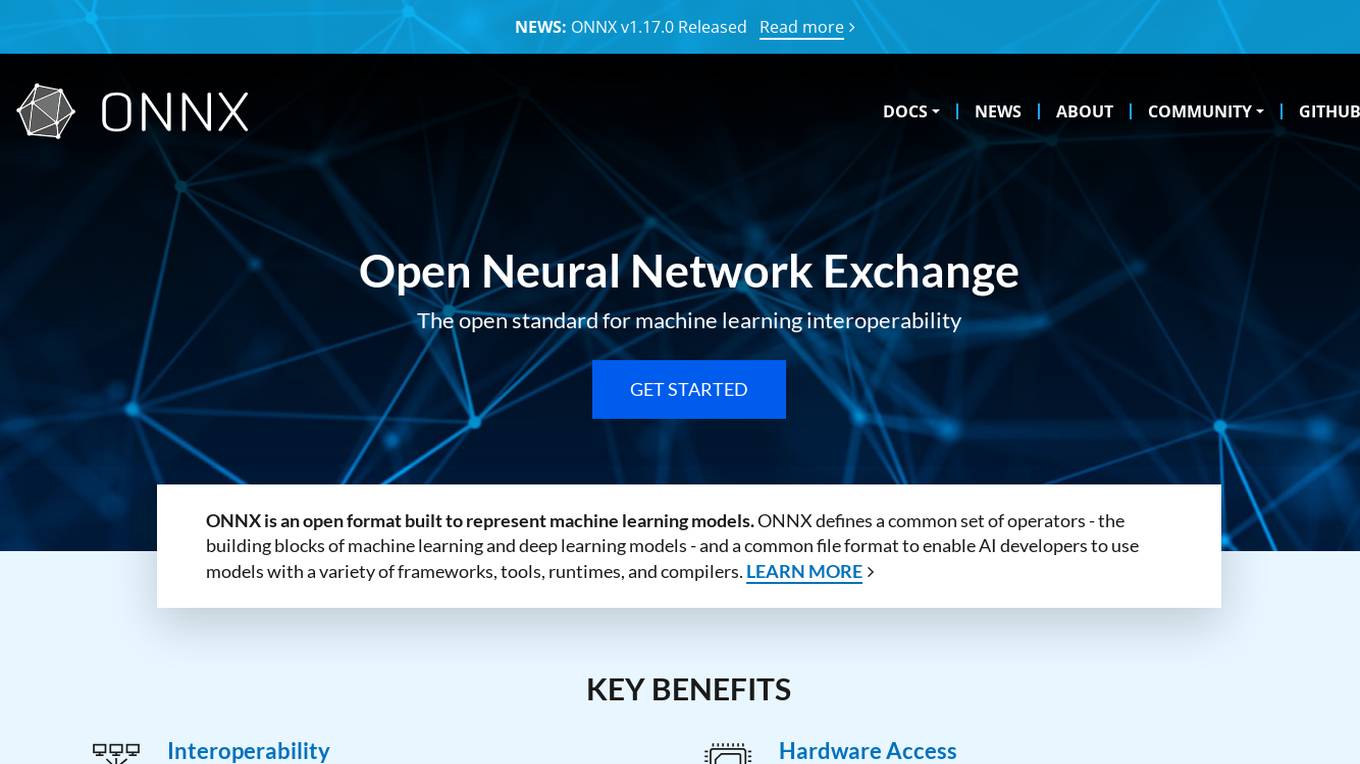
ONNX
ONNX is an open standard for machine learning interoperability, providing a common format to represent machine learning models. It defines a set of operators and a file format for AI developers to use models across various frameworks, tools, runtimes, and compilers. ONNX promotes interoperability, hardware access, and community engagement.

MimicPC
MimicPC is a web-based platform that allows users to run various AI applications directly in their browser without the need for installation. Users can access a wide range of AI tools and applications seamlessly, making it convenient for both professionals and enthusiasts to leverage the power of artificial intelligence. With MimicPC, users can perform tasks such as image recognition, natural language processing, and data analysis with ease.
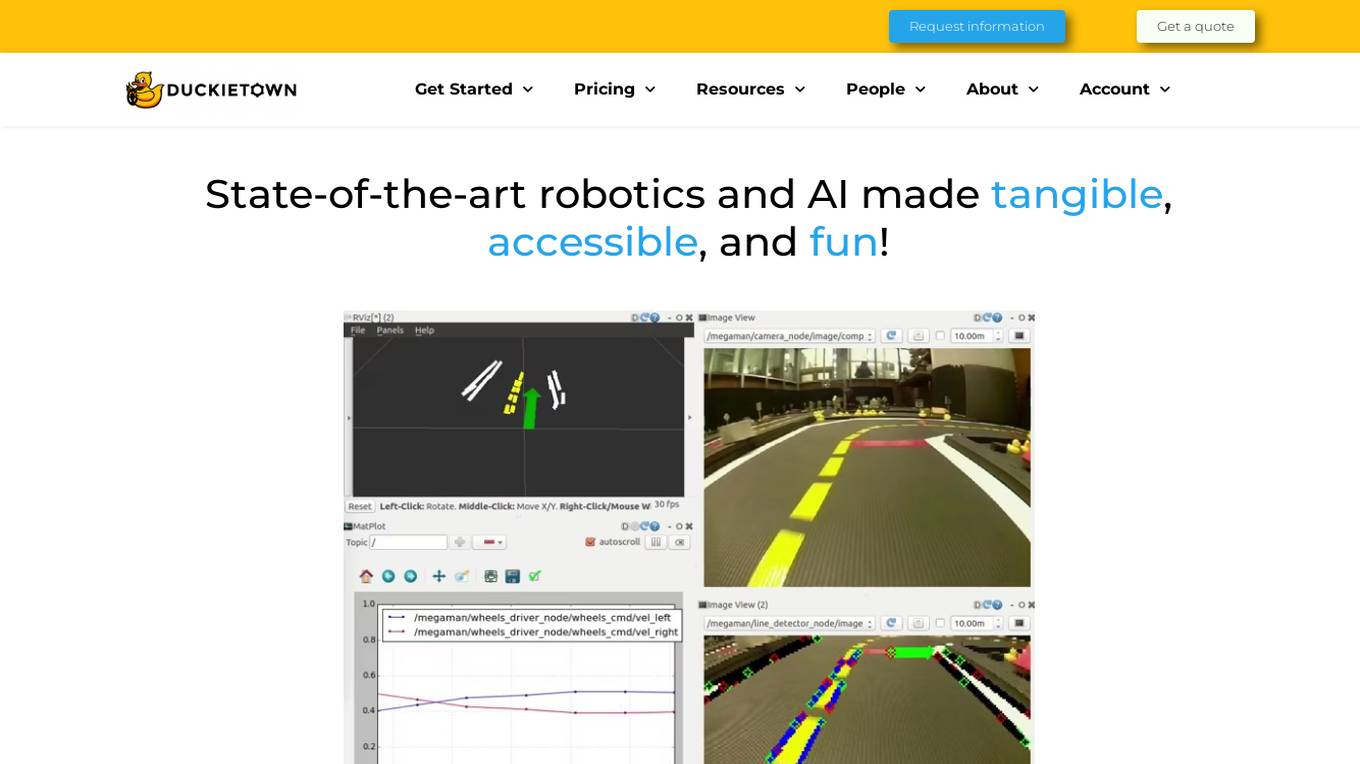
Duckietown
Duckietown is a platform for delivering cutting-edge robotics and AI learning experiences. It offers teaching resources to instructors, hands-on activities to learners, an accessible research platform to researchers, and a state-of-the-art ecosystem for professional training. Duckietown's mission is to make robotics and AI education state-of-the-art, hands-on, and accessible to all.

FaceConnect
FaceConnect is a Face Recognition Person and Access Control Management System developed by Innovation Plus Co., Ltd. It offers a centralized system for managing personnel data and controlling access using facial recognition technology. The system enhances workplace security and convenience by eliminating the need for physical ID cards. FaceConnect is designed to streamline time and attendance management in organizations through AI technology, providing efficient and secure access control solutions. The application is popular for its advanced features and high efficiency in face recognition technology.
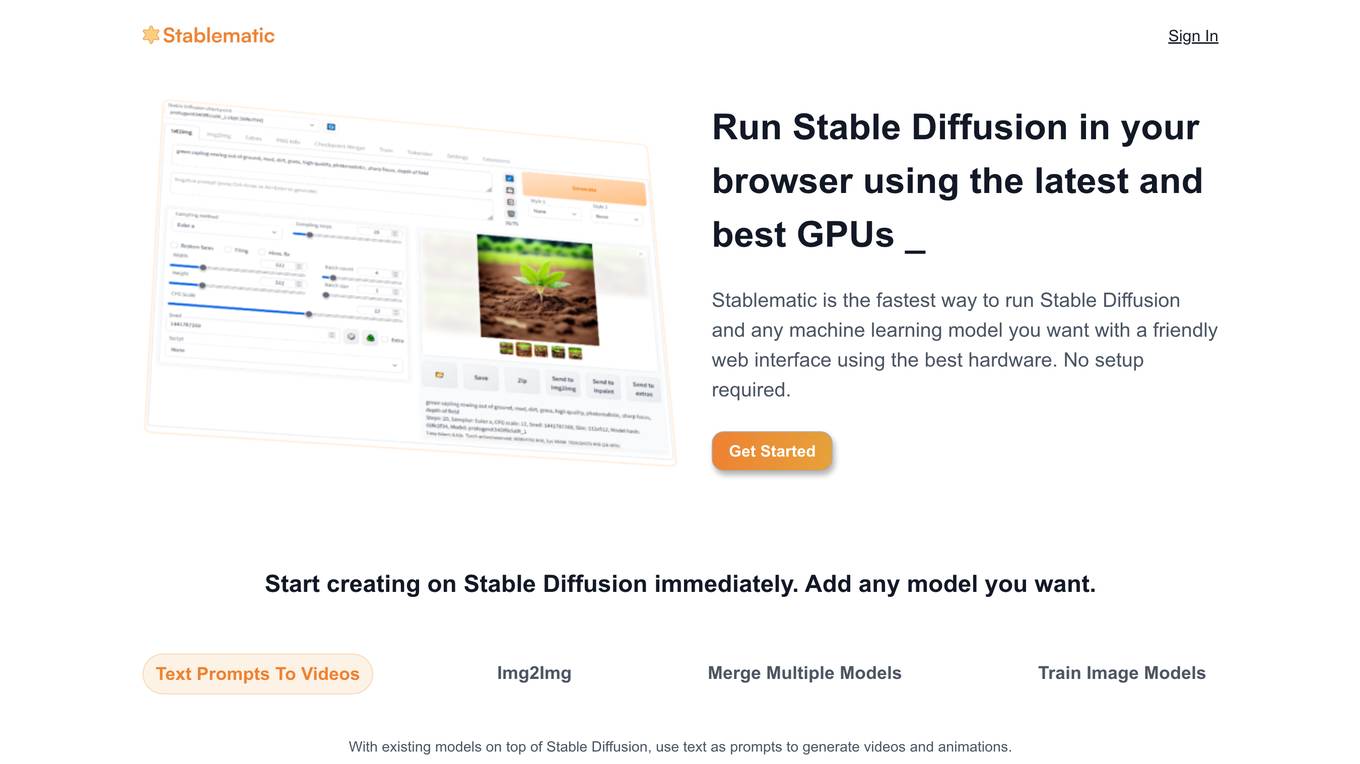
Stablematic
Stablematic is a web-based platform that allows users to run Stable Diffusion and other machine learning models without the need for local setup or hardware limitations. It provides a user-friendly interface, pre-installed plugins, and dedicated GPU resources for a seamless and efficient workflow. Users can generate images and videos from text prompts, merge multiple models, train custom models, and access a range of pre-trained models, including Dreambooth and CivitAi models. Stablematic also offers API access for developers and dedicated support for users to explore and utilize the capabilities of Stable Diffusion and other machine learning models.
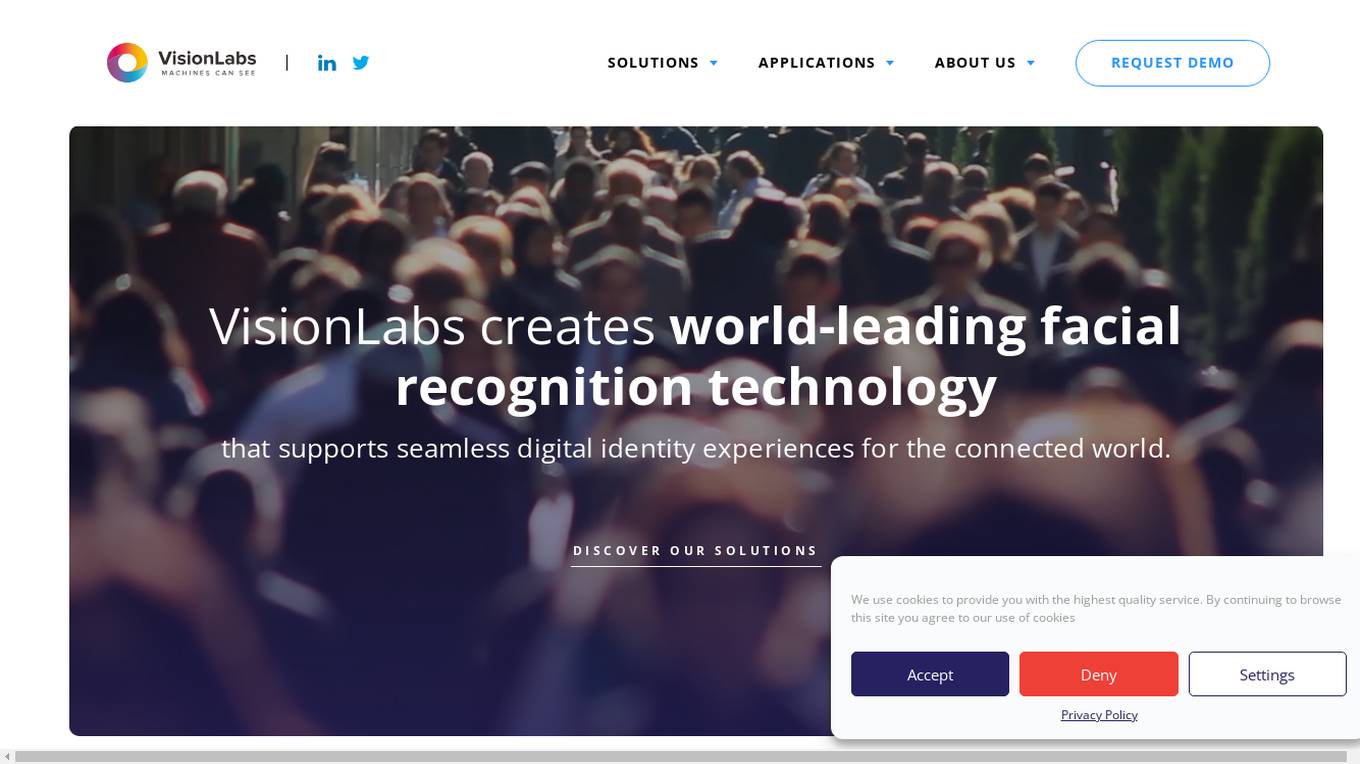
VisionLabs
VisionLabs is a leading provider of facial recognition technology that enhances digital identity experiences. Their Artificial Intelligence and Machine Learning technology, based on neural network algorithms, ensures a safer and more secure world, enabling seamless navigation in the digital realm. With applications in over 60 countries across various industries, VisionLabs aims to facilitate better and safer interactions through facial recognition technology.

Haechi AI
Haechi AI is an all-in-one AI platform that provides access to advanced AI models for various purposes such as education, content creation, retail, development, and innovation. It offers a range of features including creating questions, completing homework, correcting grammar, writing theses, developing projects, generating images, summarizing texts, translating languages, enhancing presentations, and more. The platform is designed to empower users with powerful tools and fine-tuned models to boost efficiency and productivity in their tasks. With Haechi AI, users can leverage cutting-edge AI technology without the need for downloading or installing anything, enabling them to push the boundaries of technology effortlessly.

True Anomaly
True Anomaly is a technology company focused on redefining space security by developing hardware and software solutions at the intersection of spacecraft, software, and AI. The company aims to enhance the capabilities of the U.S., its allies, and commercial partners to safeguard global security and ensure space access and sustainability for all. True Anomaly offers a holistic platform powered by a common operating system for end-to-end development of applications and services for space-based missions.
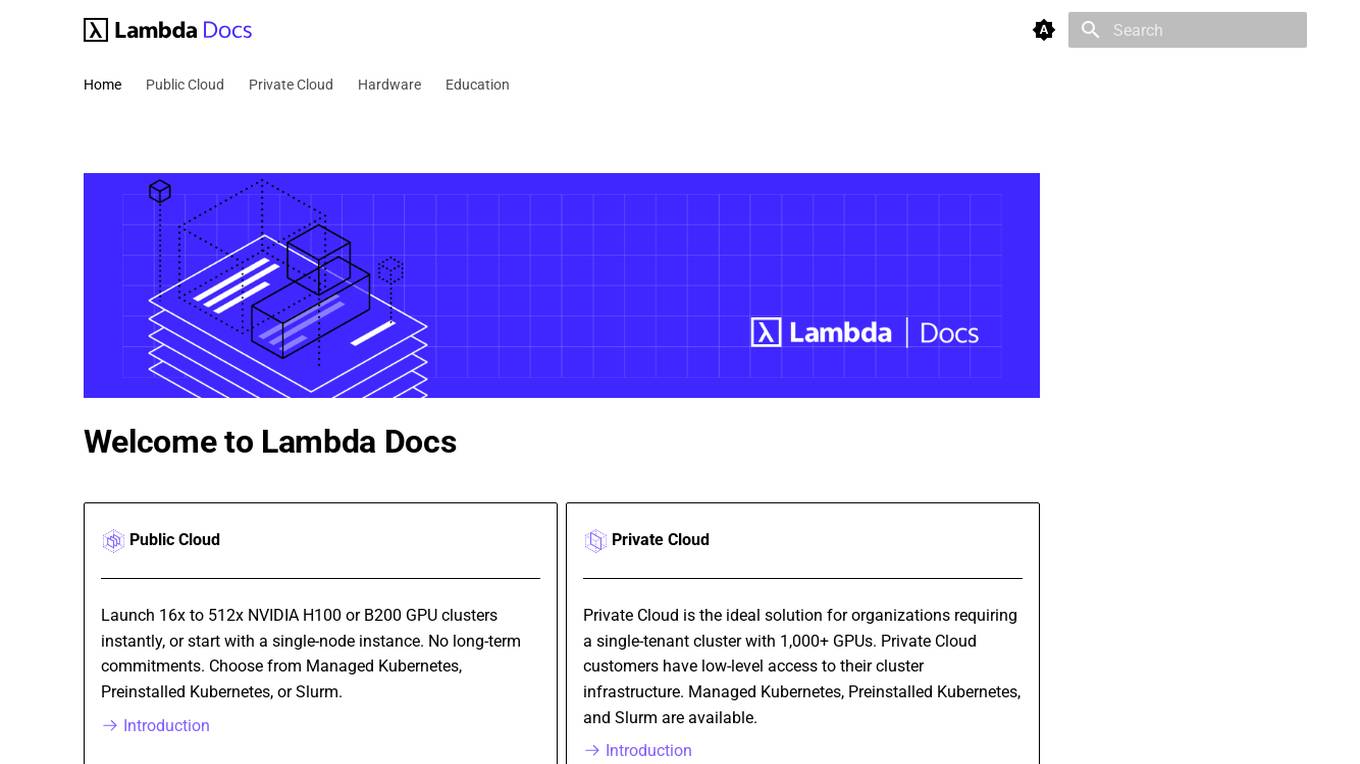
Lambda Docs
Lambda Docs is an AI tool that provides cloud and hardware solutions for individuals, teams, and organizations. It offers services such as Managed Kubernetes, Preinstalled Kubernetes, Slurm, and access to GPU clusters. The platform also provides educational resources and tutorials for machine learning engineers and researchers to fine-tune models and deploy AI solutions.

Verdict
Verdict is an AI-powered platform that provides news, analysis, and insights on various sectors including 5G, Fintech, Hardware, Artificial Intelligence, Cloud, Cybersecurity, Internet of Things, Robotics, and Social Responsibility. The platform offers in-depth articles, expert opinions, and data-driven reports to help users stay informed about the latest trends and developments in the technology industry.
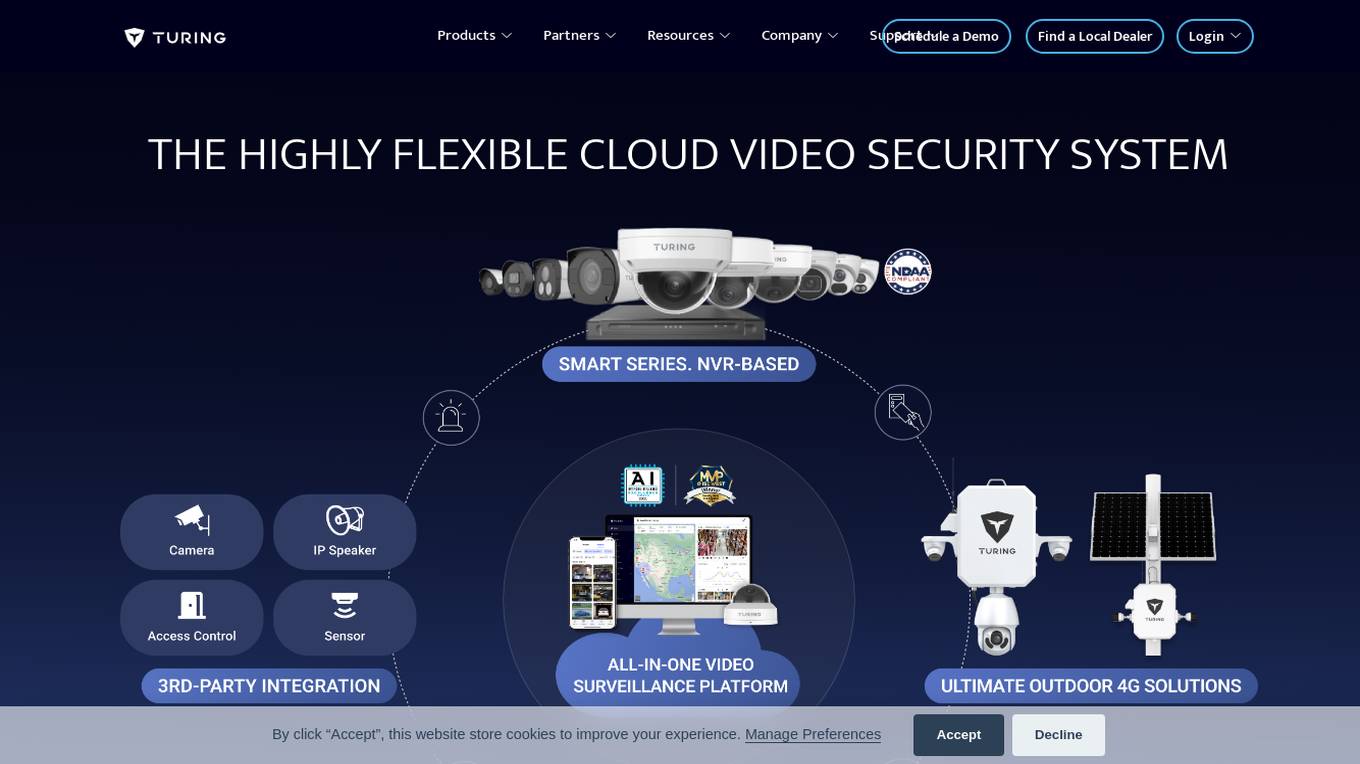
Turing AI
Turing AI is a cloud-based video security system powered by artificial intelligence. It offers a range of AI-powered video surveillance products and solutions to enhance safety, security, and operations. The platform provides smart video search capabilities, real-time alerts, instant video sharing, and hardware offerings compatible with various cameras. With flexible licensing options and integration with third-party devices, Turing AI is trusted by customers across industries for its robust and innovative approach to cloud video security.
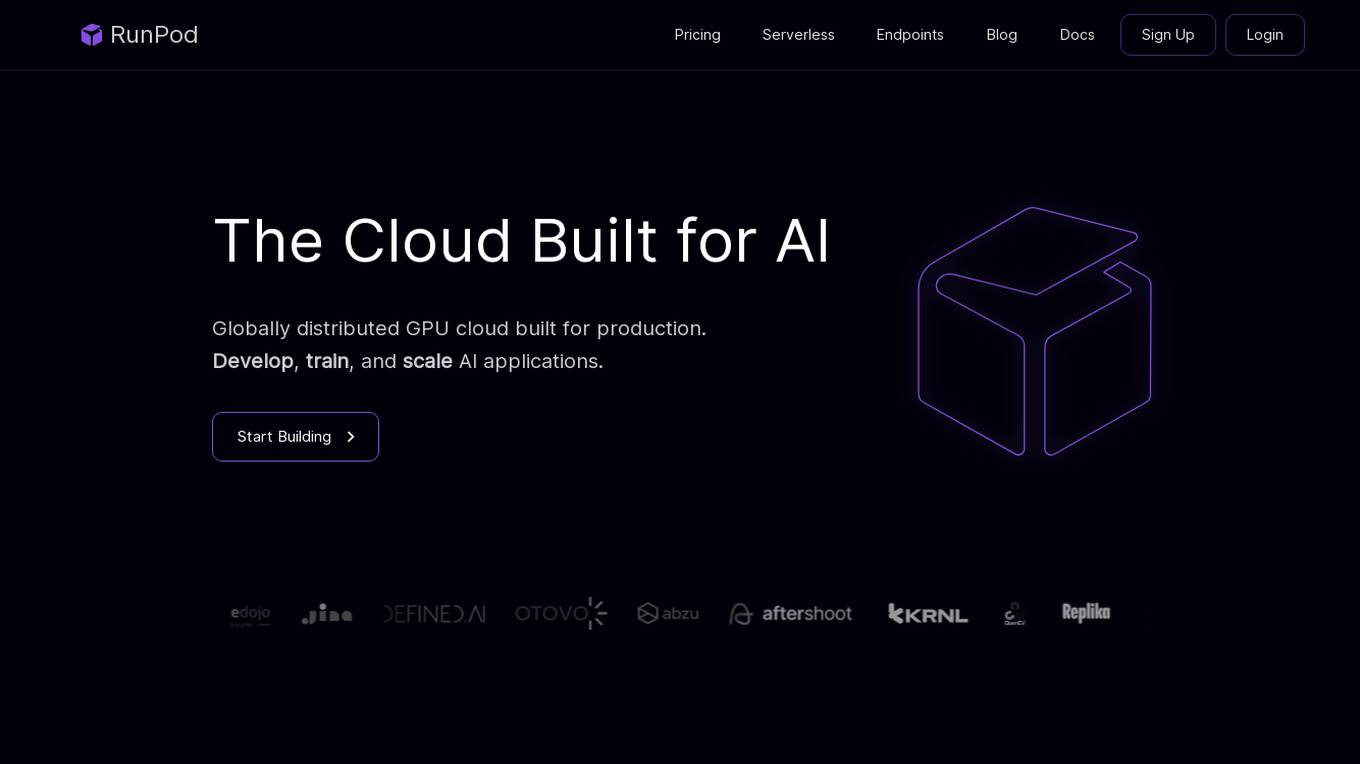
RunPod
RunPod is a cloud platform specifically designed for AI development and deployment. It offers a range of features to streamline the process of developing, training, and scaling AI models, including a library of pre-built templates, efficient training pipelines, and scalable deployment options. RunPod also provides access to a wide selection of GPUs, allowing users to choose the optimal hardware for their specific AI workloads.
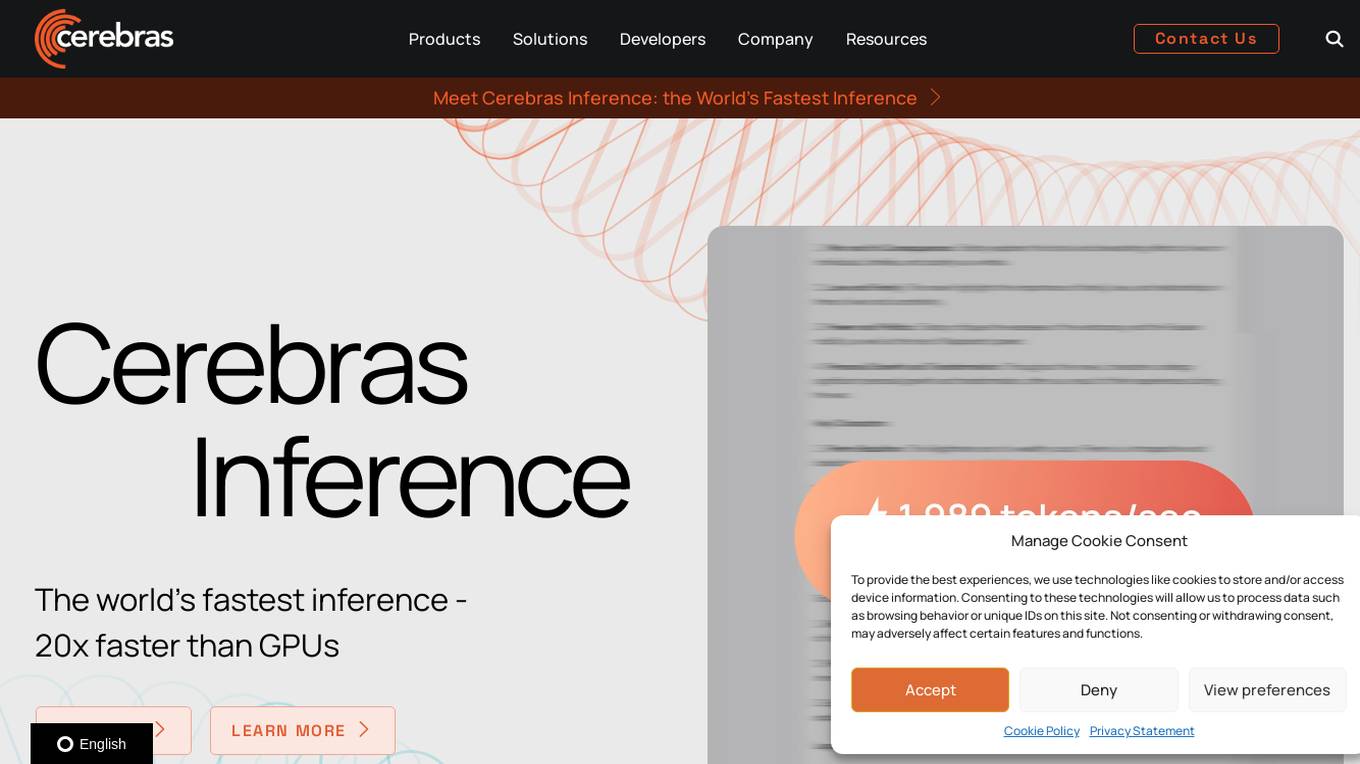
Cerebras
Cerebras is a leading AI tool and application provider that offers cutting-edge AI supercomputers, model services, and cloud solutions for various industries. The platform specializes in high-performance computing, large language models, and AI model training, catering to sectors such as health, energy, government, and financial services. Cerebras empowers developers and researchers with access to advanced AI models, open-source resources, and innovative hardware and software development kits.

Access Denied Error Page
The website appears to be experiencing an 'Access Denied' error, preventing users from accessing the intended content. This error message typically occurs when the server denies access to a specific URL, possibly due to permission issues or server misconfigurations. Users encountering this message are advised to contact the website administrator for assistance in resolving the access restriction.
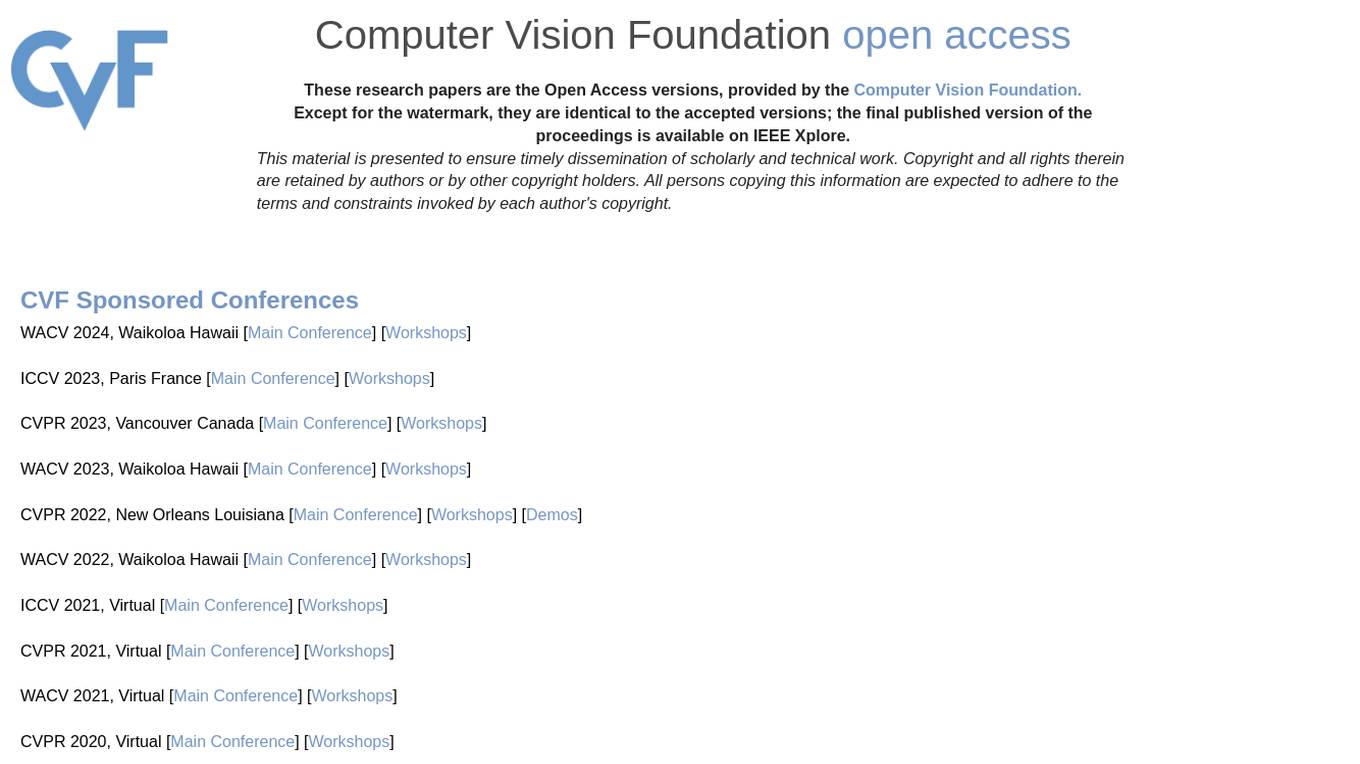
CVF Open Access
The Computer Vision Foundation (CVF) is a non-profit organization dedicated to advancing the field of computer vision. CVF organizes several conferences and workshops each year, including the International Conference on Computer Vision (ICCV), the Conference on Computer Vision and Pattern Recognition (CVPR), and the Winter Conference on Applications of Computer Vision (WACV). CVF also publishes the International Journal of Computer Vision (IJCV) and the Computer Vision and Image Understanding (CVIU) journal. The CVF Open Access website provides access to the full text of all CVF-sponsored conference papers. These papers are available for free download in PDF format. The CVF Open Access website also includes links to the arXiv versions of the papers, where available.

AIMLAPI.com
AIMLAPI.com is an AI tool that provides access to over 200 AI models through a single AI API. It offers a wide range of AI features for tasks such as chat, code, image generation, music generation, video, voice embedding, language, genomic models, and 3D generation. The platform ensures fast inference, top-tier serverless infrastructure, high data security, 99% uptime, and 24/7 support. Users can integrate AI features easily into their products and test API models in a sandbox environment before deployment.
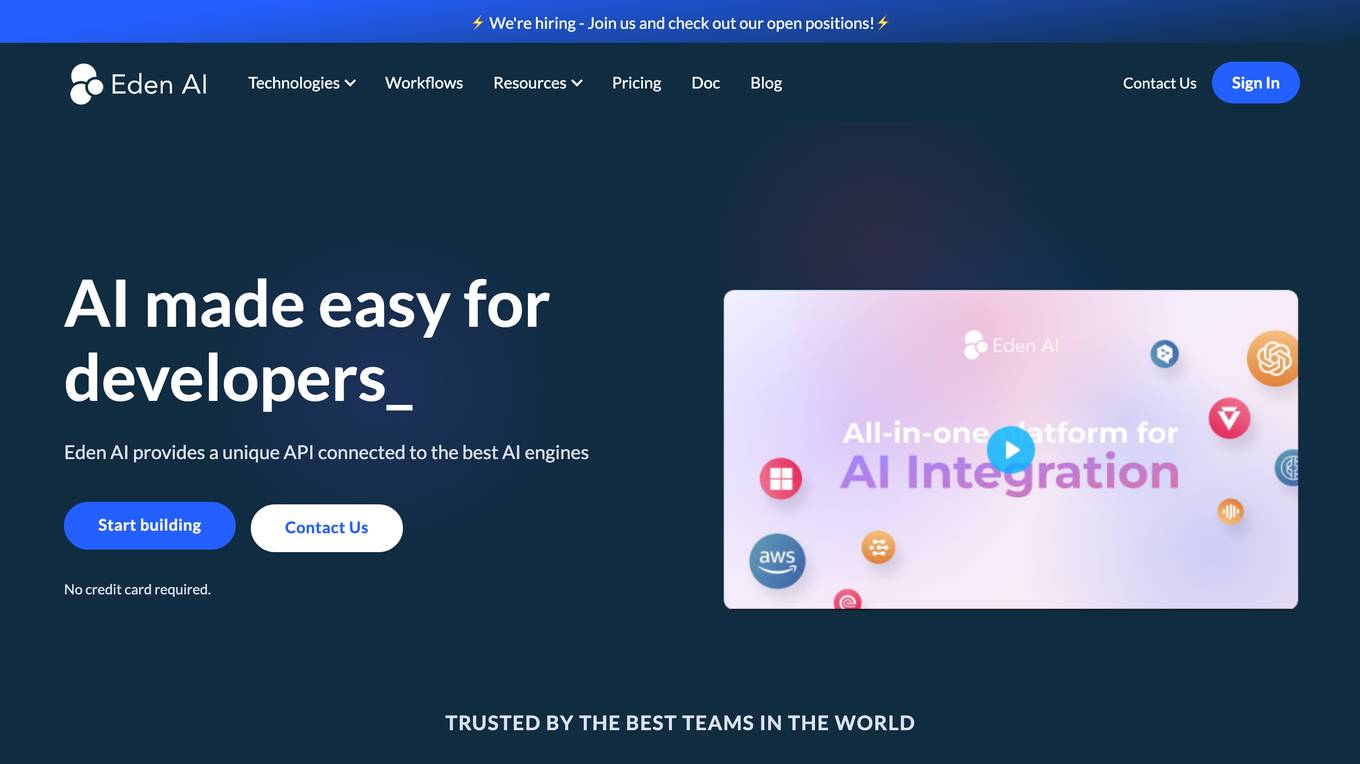
Eden AI
Eden AI is a platform that provides access to over 100 AI models through a unified API gateway. Users can easily integrate and manage multiple AI models from a single API, with control over cost, latency, and quality. The platform offers ready-to-use AI APIs, custom chatbot, image generation, speech to text, text to speech, OCR, prompt optimization, AI model comparison, cost monitoring, API monitoring, batch processing, caching, multi-API key management, and more. Additionally, professional services are available for custom AI projects tailored to specific business needs.

403 Forbidden
The website appears to be displaying a '403 Forbidden' error message, which typically means that the user is not authorized to access the requested page. This error is often encountered when trying to access a webpage without the necessary permissions or when the server is configured to deny access. The message 'openresty' may indicate that the server is using the OpenResty web platform. It is important to ensure that the correct permissions are in place and that the requested page exists on the server.
1 - Open Source AI Tools
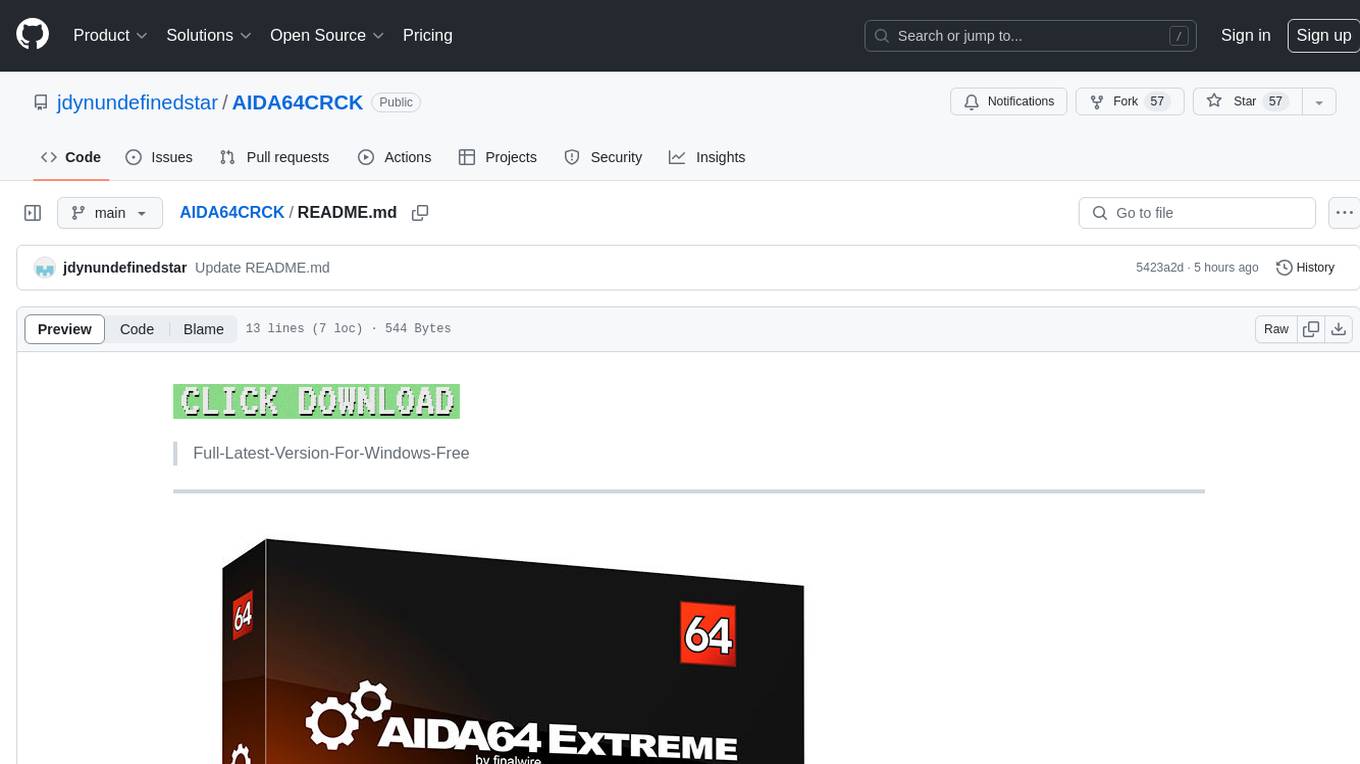
AIDA64CRCK
AIDA64CRCK is a tool designed for Windows users to access the latest version for free. It provides users with comprehensive system information and diagnostics to optimize their computer performance. The tool is user-friendly and offers detailed insights into hardware components, software configurations, and system stability. With AIDA64CRCK, users can easily monitor their system health and troubleshoot any issues that may arise, making it a valuable utility for both casual users and tech enthusiasts.
20 - OpenAI Gpts

Your ERP Public Access Advisor
Expert in Your ERP software, specializing in White Label contracts and implementation advice.

GptInfinite - PAI (Paid Access Integrator)
💲Monetize your new or existing GPTs! 💳Choose from free trial, freemium or premium pricing models. 🔐Generate and verify keys. 📦Self contained w/ no need for apis or actions. ✨Instant access to updates. 💾Worry free backups ⏱Save time and effort. 💰Monetize today! -v0.60
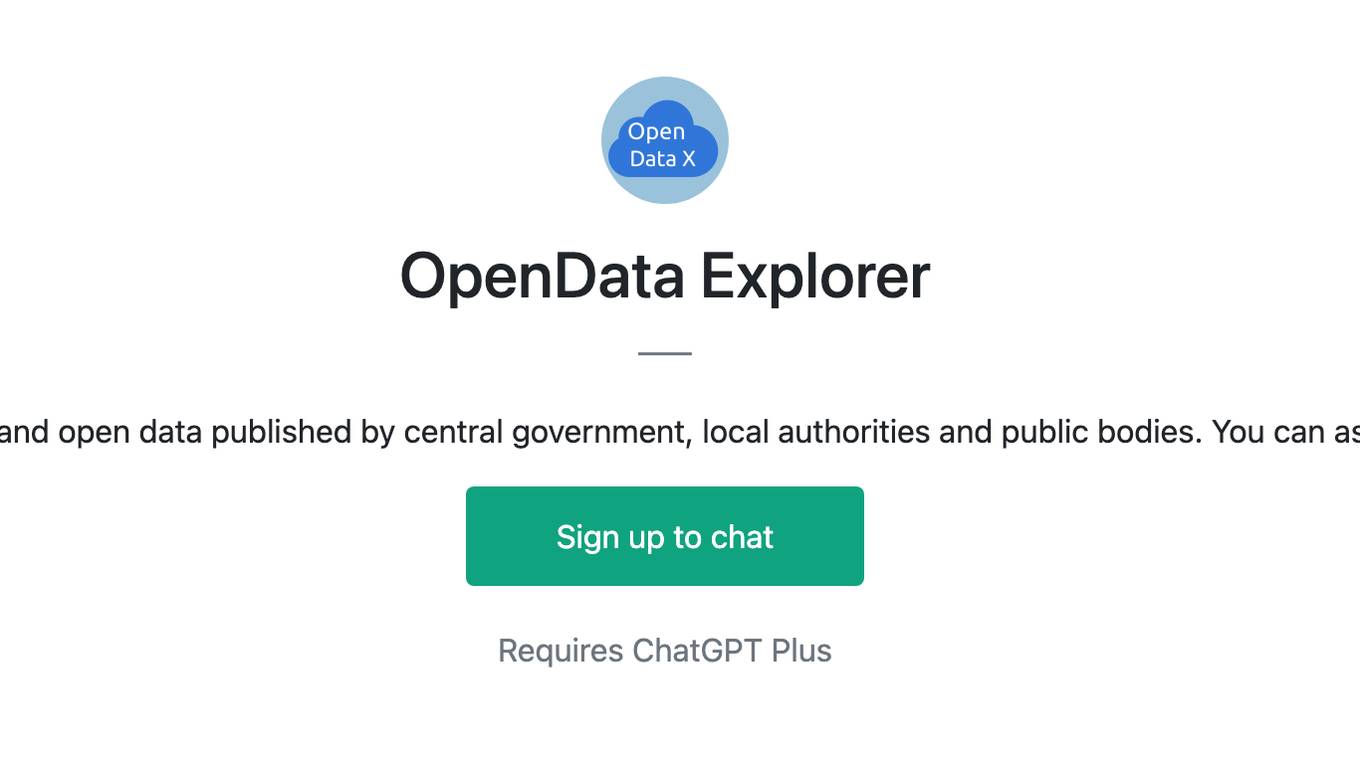
OpenData Explorer
I'll help you access and understand open data published by central government, local authorities and public bodies. You can ask me in your native language.

Car Repair Manuals
Access free car repair manuals and auto repair manuals with our AI tool. Ideal for DIY car repair, use online car repair manuals and download car repair manuals. Discover the best car repair manuals for beginners and use car diagnostic tools. Buy car parts online and follow a car maintenance .

Ask Cris about File Maker
An experiment in personal FileMaker guidance from the collective works of lifetime award-winning FileMaker trainer, Cris Ippolite. Not just links to resources, but direct access to 20+ years of custom training curriculum combined with expert AI instruction without the noise of external web links.

PubMed Buddy
This GPT has access to both PubMed and the UnPaywall database, allowing conversational exploration of the literature and direct access to full-text articles
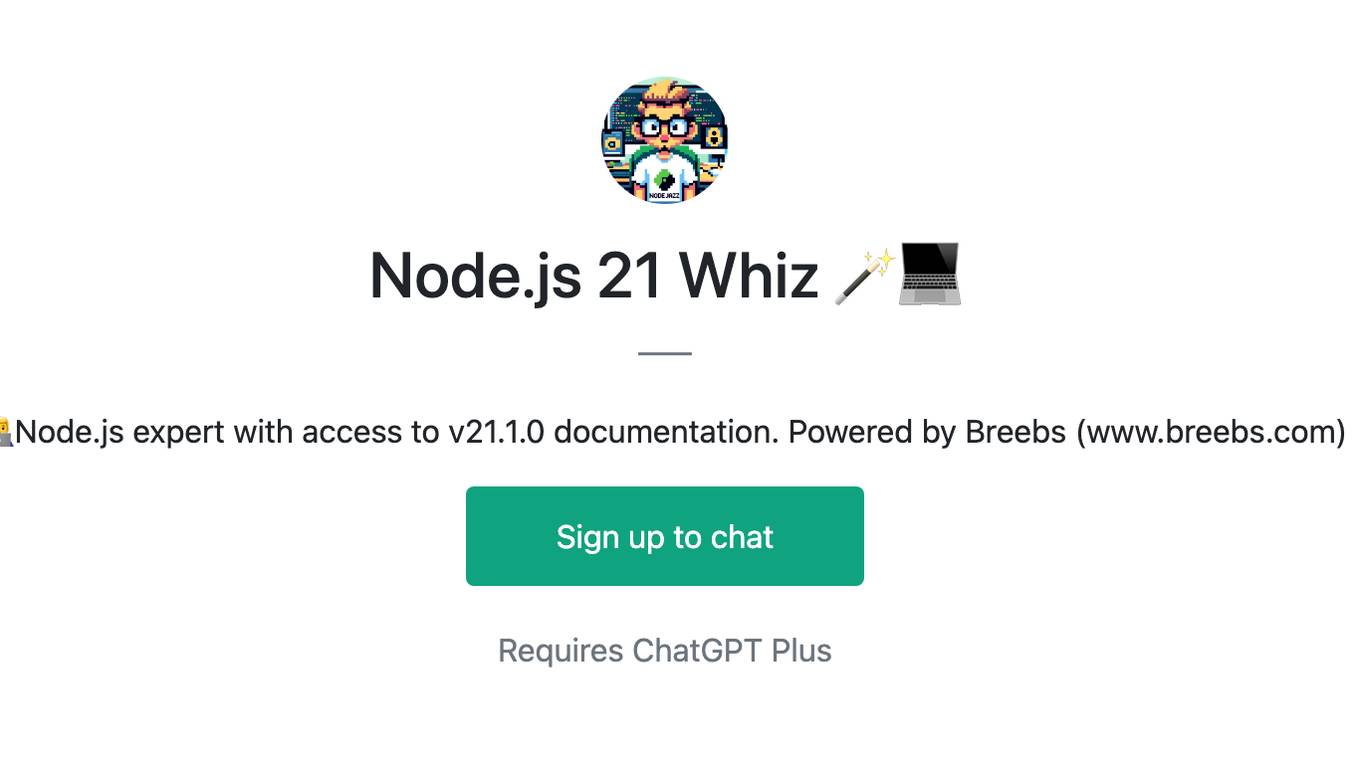
Node.js 21 Whiz 🪄💻
👨💻Node.js expert with access to v21.1.0 documentation. Powered by Breebs (www.breebs.com)

IKANGAI
Enhanced assistant with access to Ikangai RSS Feed, Content API, and deep knowledge integration.

👑 Data Privacy for Home Inspection & Appraisal 👑
Home Inspection and Appraisal Services have access to personal property and related information, requiring them to be vigilant about data privacy.

电子书枪手(EbookProGPT)
Versatile e-book creation tool with access to extensive databases and tools.

Quotient
Investment Co-Pilot: Portfolio backtesting and access to in-depth financial data and historical closing prices of US-listed companies. (Pulse formerly)



